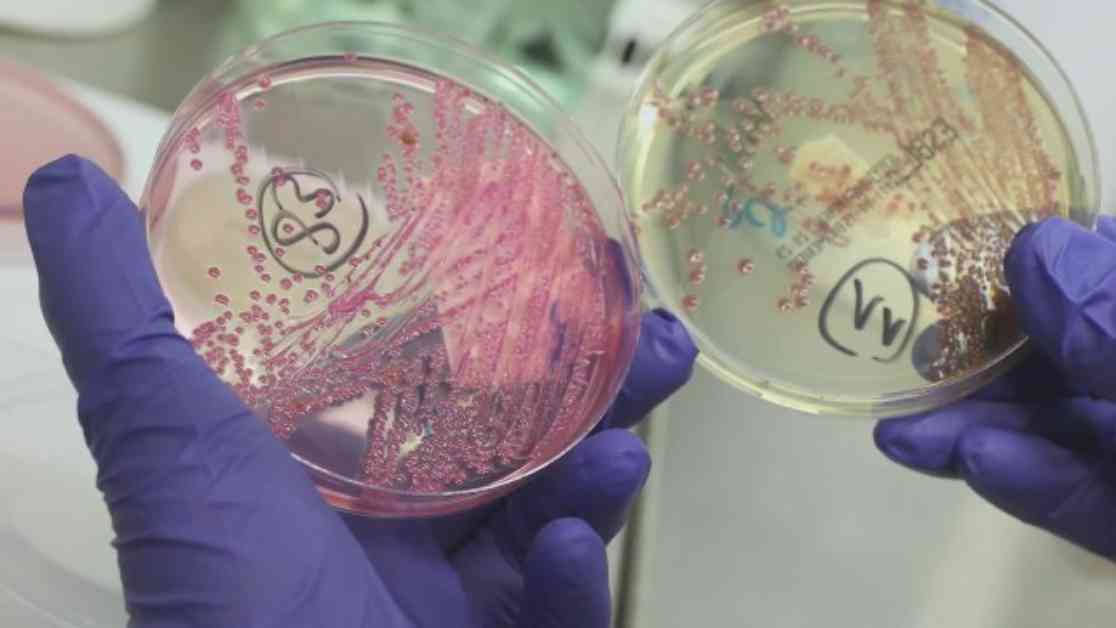E. coli Outbreak in St. Charles County: Insights and Impact
In a shocking turn of events, a new lawsuit has emerged in St. Charles County, Missouri, shedding light on the recent outbreak of E. coli that has swept the nation. The lawsuit, filed against a local caterer in St. Charles County, has brought to the forefront the severity and far-reaching consequences of this foodborne illness.
A Teacher’s Struggle
The lawsuit represents Melanie Smith, a dedicated teacher at Central Elementary in the Francis Howell School District. Smith’s ordeal began after consuming a salad at a parent-teacher conference in early November, leading to a series of hospitalizations and blood transfusions. Her battle with E. coli has been arduous, leaving her unable to return to work until at least January due to complications from a type of kidney disease known as HUS, commonly caused by the E. coli 0157 strain.
Attorney Jory Lange, representing Smith, highlighted the gravity of the situation, emphasizing how certain professions like teaching, healthcare, and food service are particularly vulnerable to the prolonged effects of E. coli infections. Smith’s case serves as a poignant reminder of the real-life impact of foodborne illnesses on individuals and communities.
Investigation and Collaboration
Amidst the unfolding crisis, the Francis Howell School District and the St. Charles County Health Department have been actively involved in investigating the outbreak. While the district denied knowledge of an outbreak within its premises, they affirmed their cooperation with health authorities to ensure food safety standards are upheld.
The Health Department confirmed 10 reported cases of E. coli 0157 in November, signaling the urgency of identifying the contamination sources. Despite ongoing investigations, the identity of the caterer responsible for the outbreak remains undisclosed, underscoring the complexity of tracing and containing foodborne illnesses.
National Concern and Response
The scale of the outbreak extends beyond St. Charles County, with the CDC reporting 75 illnesses across 12 states linked to a common lettuce blend supplied at various events and schools. Missouri’s Department of Health revealed 45 cases statewide, with a significant concentration in the eastern region, amplifying the need for coordinated efforts to address the crisis.
While the CDC reassured the public that the contaminated lettuce is no longer in circulation, the increasing number of cases underscores the urgency of preventive measures and heightened vigilance in food handling practices. As investigations continue to unfold, the collective response from health authorities, educators, and community members remains pivotal in safeguarding public health against such outbreaks.
Conclusion: A Call to Action
As we navigate through the complexities of the E. coli outbreak in St. Charles County and beyond, it is imperative to recognize the human stories behind the statistics and legal proceedings. Melanie Smith’s battle serves as a poignant reminder of the vulnerabilities inherent in our food supply chain and the critical importance of stringent food safety protocols.
In the face of uncertainty and health risks, let us stand together in solidarity, advocating for transparent investigations, proactive measures, and informed decision-making to mitigate the impact of foodborne illnesses on our communities. The journey towards a safer and healthier future begins with each of us taking responsibility for our actions and choices, ensuring that incidents like the E. coli outbreak in St. Charles County serve as catalysts for positive change and resilience.
